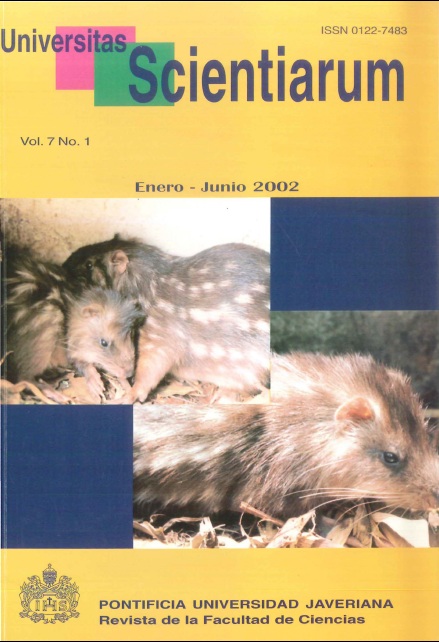Abstract
In order to reduce the incubation time and temperature in the Tetanic Toxin detoxification process, different times and temperature were evaluated; taking crops in process that were grown in tetanus Lab production of the National Institute of Health. To determine the exact da y of detoxification a logis tic model was established. The toxin was incubate at 4,22 and 37°C to estimate the optim temperature. Then the physical-chemical characteristics like (pH), and the biologycal characteristics (Lf/mL, unspecific, specific toxicity and antigenicy) of the toxoid were verified. The best conditions for the process are: 25 days of incubation at 37°C. With the characteristics above, yearly there is a possibility to get a profit of 1.513.350 doses that represen! $37.833.750 for the production of the Tetanic ToxinUniv. Sci. is registered under a Creative Commons Attribution 4.0 International Public License. Thus, this work may be reproduced, distributed, and publicly shared in digital format, as long as the names of the authors and Pontificia Universidad Javeriana are acknowledged. Others are allowed to quote, adapt, transform, auto-archive, republish, and create based on this material, for any purpose (even commercial ones), provided the authorship is duly acknowledged, a link to the original work is provided, and it is specified if changes have been made. Pontificia Universidad Javeriana does not hold the rights of published works and the authors are solely responsible for the contents of their works; they keep the moral, intellectual, privacy, and publicity rights. Approving the intervention of the work (review, copy-editing, translation, layout) and the following outreach, are granted through an use license and not through an assignment of rights. This means the journal and Pontificia Universidad Javeriana cannot be held responsible for any ethical malpractice by the authors. As a consequence of the protection granted by the use license, the journal is not required to publish recantations or modify information already published, unless the errata stems from the editorial management process. Publishing contents in this journal does not generate royalties for contributors.



